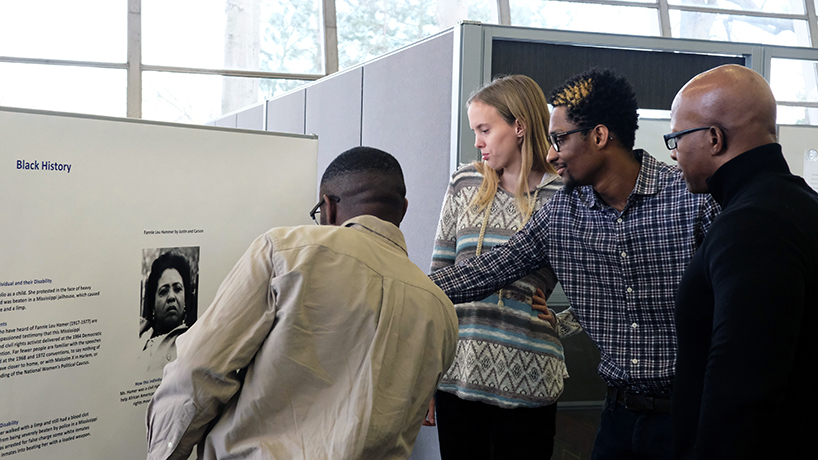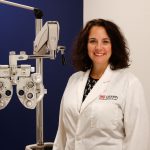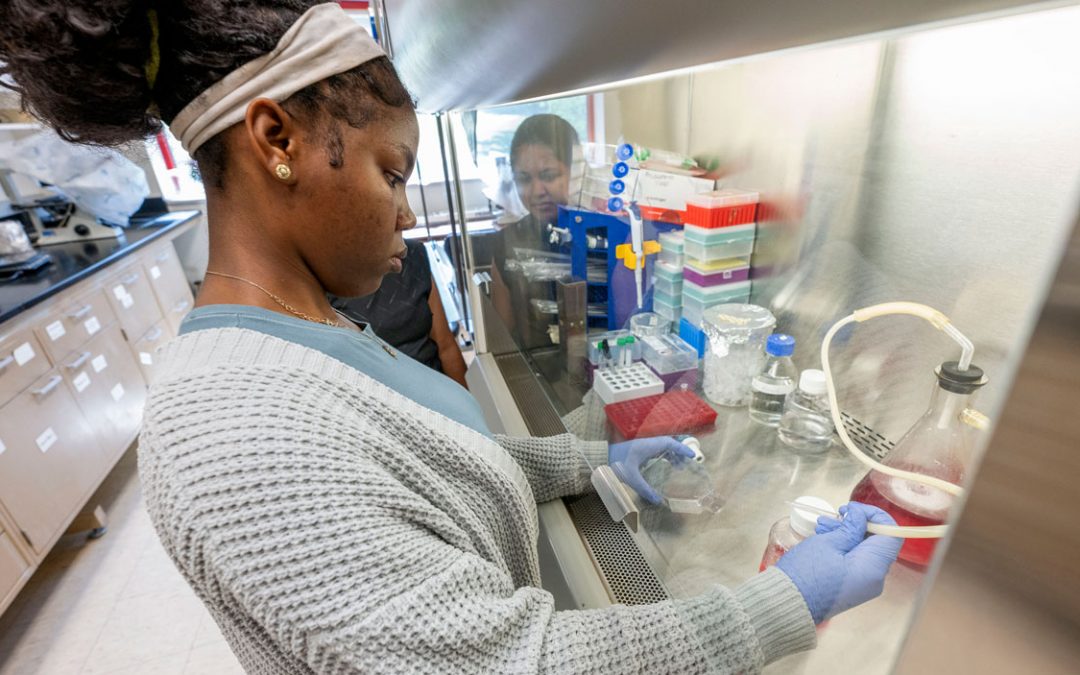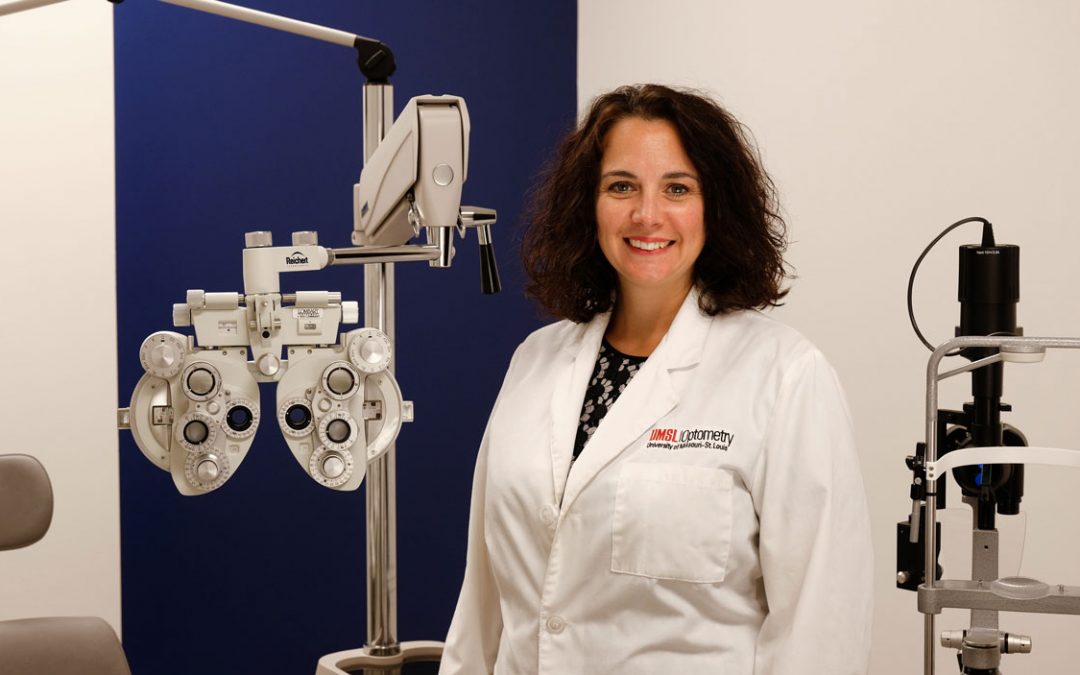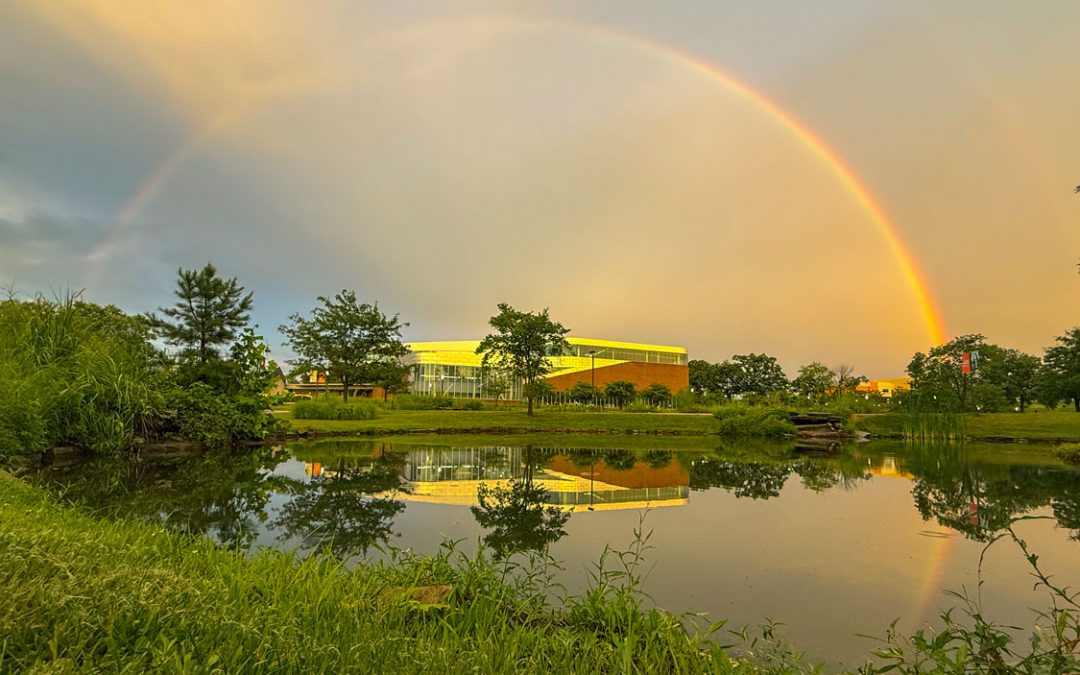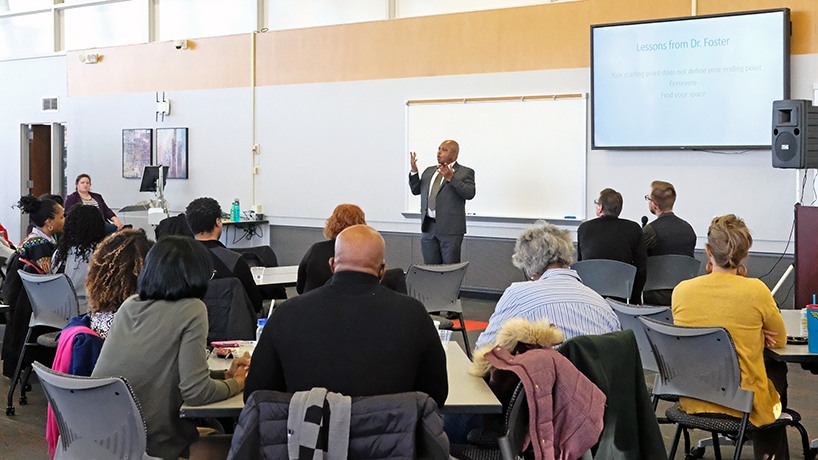
Opeoluwa Sotonwa discussed the challenges of growing up and attending higher education in Nigeria as a deaf individual and how he took inspiration from Andrew Foster, who established 32 schools for the deaf across Africa. (Photos by Mona Sabau)
Hold on. I need to make a call, the woman at the front registration desk at the Nigerian Law School told Opeoluwa Sotonwa. He’d asked if she’d mind writing replies back and forth since he was a deaf individual.
Twenty minutes later, the school rescinded his acceptance.
“There were no laws in place, no rights that were set in the system,” said the now-executive director of the Missouri Commission for the Deaf and Hard of Hearing. “There was nothing. We were considered second class citizens and were looked down upon… That was pretty heartbreaking.”
Sotonwa decided to sue the school and share his story in newspapers. Embarrassed, the school changed course, and he graduated within five years.
That was just one of the challenges and barriers the lawyer shared on Tuesday during “Holla if You Hear Me: Amplifying Voices of Black Disability Advocates, Past and Present,” which took place in the Ed Collabitat on South Campus at the University of Missouri–St. Louis. The event was presented by the UMSL SUCCEED program in conjunction with the Office of Student Involvement as part of UMSL’s Black History Month programming, and Deaf Way provided an interpreter.
As a result of his experience, Sotonwa drafted Nigeria’s first ever disability rights bill with a group of disability advocates. He eventually came to the U.S. where he made his way to the MCDHH and the board of the National Black Deaf Advocates. He was inspired along the way by Andrew Foster, the first black graduate of Gallaudet University, who moved to Africa and established 32 schools for the deaf across the continent.
“He made sure more deaf individuals had access to education,” Sotonwa said. “You must persevere. That is my message for you all here today. There will be situations where you feel that there’s a barrier you just can’t get past. You may face struggles within life. But as long as you persevere, you will be successful.
“Another important point is to find your space. We must consider what our purpose in life is. What is our goal in life? How can we make a difference in other people’s lives as well? One more thing is to plant more seeds. See those seeds grow. Dr. Foster passed more than 30 years ago, but still his seeds have grown. I’m one of those seeds.”
In addition to Sotonwa’s talk, the event featured poster presentations from the current SUCCEED cohort. Students, in groups of two to four, spent about an hour presenting research and posters about historic black Americans with disabilities to the approximately 30 audience members. The students picked their subjects and started researching at the beginning of the semester but had a little less than a month to construct and print their posters.
SUCCEED students Danielle Moore (second from left) and Tyler Haynes (second from right) present on Fannie Lou Hamer during Tuesday’s event.
“It’s a really exciting opportunity for us to take two different communities and merge the two,” said Rachel Goldmeier, SUCCEED student support specialist. “It was great to see our students get so excited about this, to pick figures that people know a lot about and some that people don’t know anything about and bring them into the forefront of everybody’s attention. I think the students gain confidence, the ability to have their voices seen in here or to be able to see a variety of figures who accomplished some amazing things.”
Goldmeier pointed out that the heart of the SUCCEED program is making sure college is accessible to every single person, and the parallels and intersections between advocating for disability rights and those for African American individuals spoke to her students.
That feeling was borne out in the presentations on Fannie Lou Hamer, Maya Angelou, Halle Berry and others.
Angie Wilson presented on Barbara Jordan, a lawyer and politician who developed multiple sclerosis and was involved in the civil rights movement. She was especially struck when she learned that President Bill Clinton had wanted to nominate Jordan for the U.S. Supreme Court.
“I liked that,” Wilson said. “She had a disability, but it didn’t stop her from doing what she cared about.”
Maddie Meyer, who gave the student introduction for Sotonwa, presented on American disability rights lawyer Haben Girma. Meyer hopes to become the voice of glioblastoma.
“She was the first African American woman with a disability to graduate Harvard Law School and be a lawyer and be successful,” Meyer said. “I found her really inspiring because I’m deaf and blind myself, so when we were looking up people, I just had to do her. It gives me hope that if she is able to become a lawyer, then I can become a funeral home director.”

